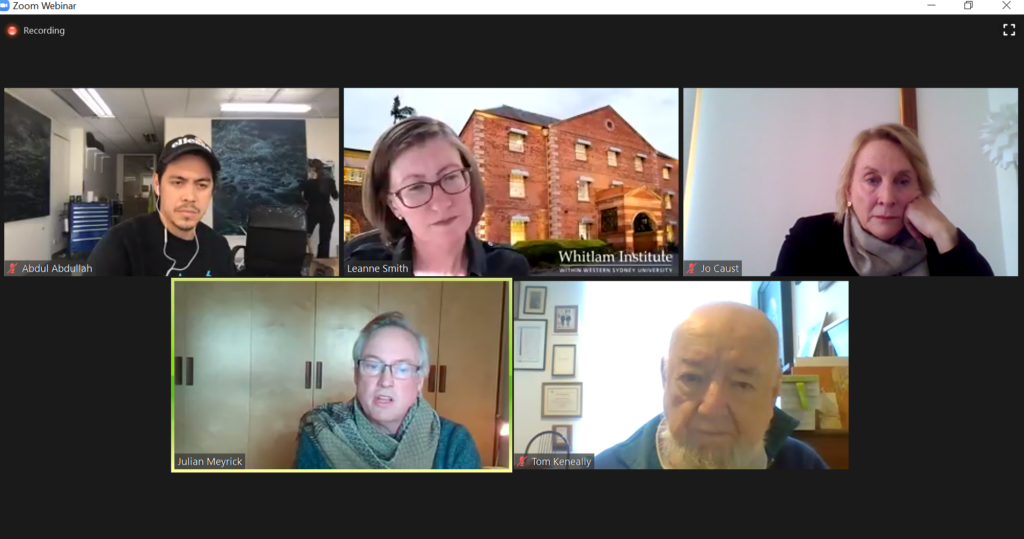Laboratory Adelaide’s Julian Meyrick took part in a recent Webinar hosted by the Whitlam Institute. The Webinar—titled ‘Democracy and the Arts: Charting the Way Forward’—focused on the value of arts and culture in Australia. It explored how the COVID-19 crisis has revealed the vulnerability of the arts sector and led to calls for additional funding for those working in the creative industries. It also asked how we can define the intrinsic value of arts and creativity without relying on economic measurements; this question is at the heart of the Laboratory Adelaide project.

Julian was joined by writer Thomas Keneally, Professor Dr. Josephine Caust from the University of Melbourne, and multi-media artist Abdul Abdullah. The event was moderated by Whitlam Institute Director Leanne Smith.
The Whitlam Institute is a public policy institute inspired by the legacy of Prime Minister Gough Whitlam, one of Australia’s most pro-arts leaders.
The event was recorded and will soon be available on the Whitlam Institute website: https://www.whitlam.org/events/charting-the-way-forward
You can also read Kim William’s legacy paper on Gough Whitlam and the arts here: https://www.whitlam.org/publications/2019/11/13/whitlam-the-arts-and-democracy
